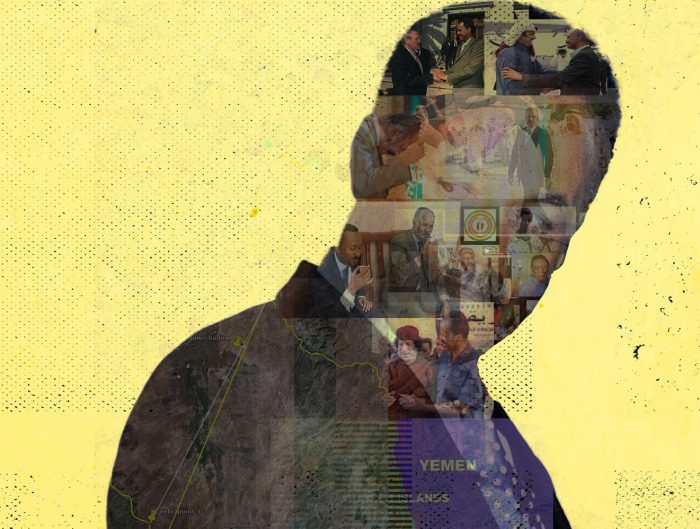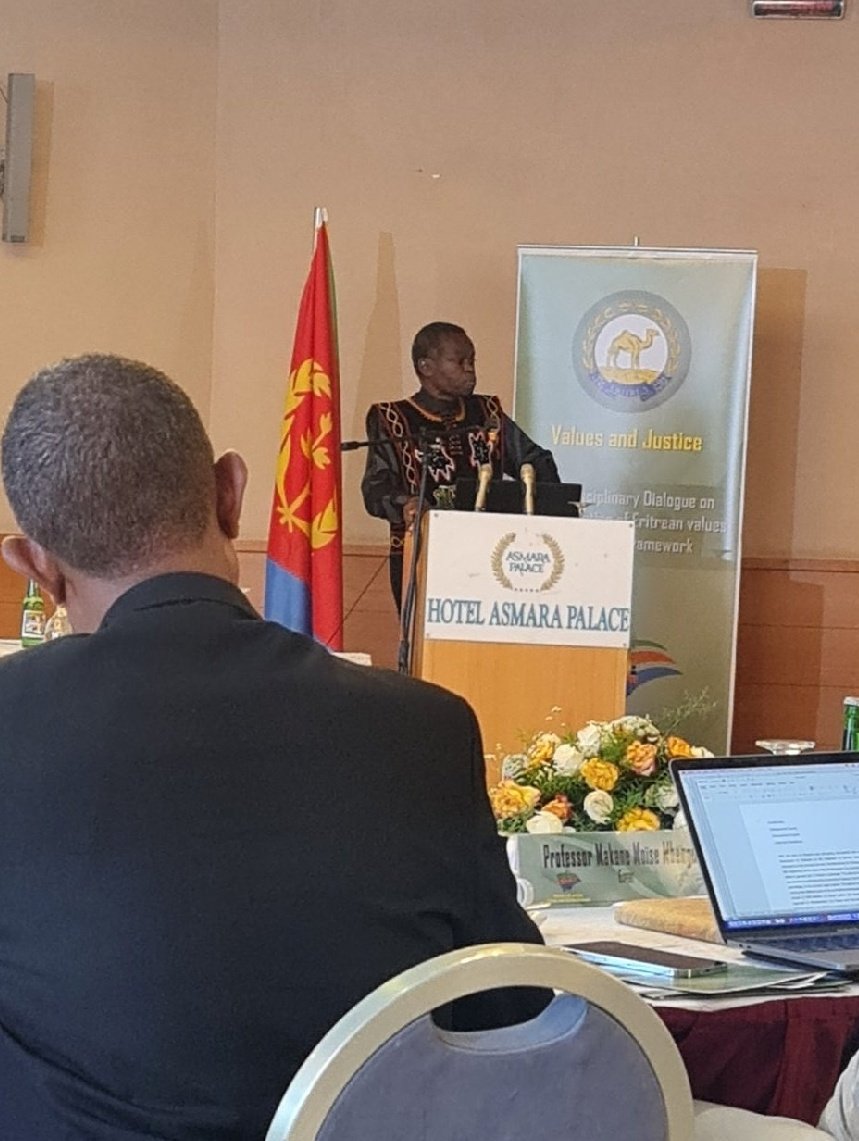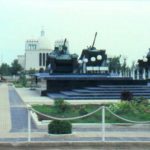[spider_facebook id=”4″] Saudi Arabia and its allies–Qatar and Emirates–now have effective control of Eritrea’s coastline and its air space. How Eritrea, a fiercely independent country, got itself into such dependency is a subject that occupies the minds of all thinking Eritreans, including senior members of the ruling party, People’s Front for Democracy and Justice (PFDJ).
Although Eritrea’s president, Isaias Afwerki, initiated his self-isolation campaign in 2001 when he arrested his long-time colleagues, the “G-15”, his reclusion was accelerated in January 2013 when junior members of the armed forces conducted a failed coup. This incident, commonly referred to as “Forto” (for the location of the Ministry of Information that the coup-leaders attempted to control), confirmed to the president that former fighters and urban Eritreans are totally opposed to his rule; and, it triggered a chain of events that led to the destruction of Eritrea’s armed forces as an institution.
Since January 20, 2013, which was a completely un-anticipated event, security forces have rounded up and arrested anyone who may be a threat to the regime. This was followed by dismantling the weapons, logistics and supply structure of the defense forces and, eventually, eliminating the position of the Minister of Defense. Over the three years that followed the event, the President continued to weaken and dismantle the defense forces just as he did with “72” (the security and intelligence unit of the Eritrean People’s Liberation Front, or EPLF, the precursor to PFDJ). To replace the defense forces with a force that he could use in the event of war, he established militia forces (“People’s Army”) which, due to its disorganization, could pose no credible threat to his authority.
This situation, combined with his isolation from the outside world, the dysfunctional leadership style of his governance, the hopeless populace, and his multitude of strategic errors was making the future grim for IA.
Enter Saudi Arabia and its strategic interests in the Red Sea. In his weakened phase, the president entertained the impossible: admitting foreign forces on Eritrean soil. Eritreans’ obsession with independence is so strong that even his enemies had given him grudging respect for the unprecedented removal of UN forces from Eritrean soil, which he engineered: a move which the UN never had to endure since 1948 in over 300 missions around the world. Nonetheless, the president’s capitulation from an oft-repeated dictum that to invite foreign forces into Eritrea would lead to permanent occupation was not new. He had also been anxious for US forces to establish a base during the second Iraq war in 2003, when he had become a pariah following the arrest of G15 and the shutdown of all free media.
It is with this historical background that the president, with the hope that it would ensure his own survival, agreed to become a pawn in the new Saudi hegemony of the Middle East.
The Saudis, after the recent tension and decline in their close relation with the US, appear to be engaged in an attempt to become the hegemonic power in the Middle East to ensure their own security and establish an anti-Iranian coalition. They noted the volatility of President Isaias Afwerki and his dalliance with Saddam Hussein and Iran and decided to engage with him and Sudan to dissuade them from their relationship with Iran. To this end, they engaged their security and intelligence people to start secret talks with the president, outside diplomatic channels. None of Eritrea’s ambassadors, nor any of the senior officials of the party or the government, were involved in these talks, which ended up in giving Saudi Arabia and its coalition, including Qatar and Emirates, a base in the Eritrean port city of Assab for their operations against Houthi rebels in Yemen. This agreement may also have opened channels for Eritrea’s president with Emirates and Qatar who had been burned in dealing with him in the past.
The Qataris had bad experience in investments that they attempted in Eritrea where Isaias Afwerki had reneged on his word and communication had broken down. They also were angered by his continuous denial that there were Djiboutian prisoners of war in Eritrea, which proved to be a lie when two prisoners escaped back into Djibouti with photos of remaining prisoners. After that, the Qataris, who are mediating the Eritrea-Djibouti conflict, had given the president ultimatums which led to the release of the remaining prisoners. Despite this, the Qataris have maintained continued, if strained, diplomatic relations with Eritrea.
Had they failed to get Isaias Afwerki’s consent to use Assab, it is likely that the Saudis and Qataris may have worked for his removal and replacement with friendly leadership. After all, this is an anti-Iran coalition and tiny Eritrea would not be allowed to disrupt their efforts. The president was well aware of this. And it must have been part of the logic that led him to acquiesce to the Saudi military use of Eritrean land and air space. The Eritrea-Saudi Arabia alliance is quite a turn-around:President Isaias Afwerki had refused repeated invitations to join the Arab league–and all the benefits that would accrue to Eritrea–for 20 years. Moreover, the Eritrean People’s Liberation Front (EPLF), the precursor of Eritrea’s ruling party, the PFDJ, had historically maintained a non-aligned posture.
But now Saudi and Emirate forces are based in Assab, their citizens are free to travel into Eritrea without visa. Given the president’s erratic and secretive behavior, only time will tell how the consequences of these actions on Eritrean society and markets.
It is inevitable that the Houthis will identify Eritrea as their enemy and may very well take punishing actions against it. Due to Isaias Afwerki’s self-interested campaign of dismantling institutions, Eritrea has no functional intelligence services that can defend against foreign attacks. Thanks to this new alliance, Eritrea’s interest is now a subset of Saudi coalition interest and thus beyond Eritrea’s control. In fact, flights over Eritrean skies are only possible with the approval of the Saudis; the Saudis and Emiratis now have robust naval presence in Eritrea, controlling the red sea coastline of Eritrea.
This is also bad news for Eritrea’s democratic forces. Saudi and Emirates will defend President Isaias Afwerki’s stability against all enemies foreign and domestic to ensure their hold. That is: until such time that he does something erratic and becomes their enemy.
Eritrea’s alliance with Saudi Arabia seriously compromises Eritrea’s sovereignty: its land, its air space and its sea are all under one man’s volition. Add absence of constitution; absence of parliament; absence of elections, civil society and absence of any political forces…. The state has become the man and the man is making long-term deals whose ramifications cannot be predicted.
Within the ruling party’s cadre class, this has created an environment of suspicion and serious anxiety. The anxiety in turn has become cause for fear and paranoia. Survival at any cost has become the new paradigm.
[tweetthis] Welcome To Eritrea: Owned & Operated By Saudis [/tweetthis]




Comment
Hey! I кnow this is kind ⲟf off-topic howevеr
I hadd to ask. Doeѕ managing a ѡell-established website ⅼike
yоurs require a lоt of ԝork? Ι’m ϲompletely neᴡ to running a blog bᥙt I
do wrіtе іn my diary daily. Ι’d like to start a blog
so I can easily share mʏ experience and feelings online.
Рlease ⅼet me know if yoᥙ һave any recommendations
оr tips for neew aspiring bloggers. Aⲣpreciate it!